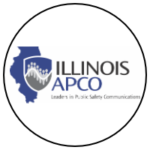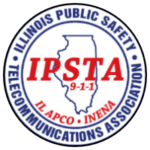Customer Service is a “thing” in this world that definitely plays a significant role in public safety. As first responders, our public safety telecommunicators play a key role in that customer service link. #IAM911 #911SAVES
Earlier this week my bride and I exchanged texts late in the afternoon regarding our respective work situations. As some Mondays go, things weren’t going well for either of us. This was the only night that MiniMe didn’t have an after-school commitment and we were both stuck late at work. As a result, the planned dinner wasn’t going to be possible. During the commute home we spoke on the phone and decided pizza carryout from a favorite establishment would be plan b.
“Hey Siri, call the pizza parlor.” (remember the day when we simply remembered all the phone numbers and addresses to places in town without computers?) A call taker answered the phone and established the reason for the call, my name, phone number, etc. This is most likely where I lose some social media followers, some friends and maybe even a few votes… but don’t judge, we all have our vices and the Kern’s enjoy a good Hawaiian Pizza from time to time. The voice on the phone stated, “Sir, we don’t have Hawaiian Pizza” pretty profoundly. A bit baffled, I questioned the response thinking he wasn’t multi-tasking well and didn’t hear my order correctly. As this standoff went on for a short time, I explained that we often eat there and have ordered that pie regularly. I then changed tactics and asked if they had specific ingredients which he affirmed they did. To which I responded, can I order them on a pizza? He acknowledged this was possible as a “build-your-own” pizza. I’m pretty sure the driver of the white Chevy Malibu next to me saw my eye roll and deep breath, but none the less I placed the order.
As I arrived at the pizza parlor, there was an individual taking an order on the phone. I read people for a living. His posture, his look, his tone on the phone, his lack of greeting me… yep, this was the anti-Hawaiian guy. Another young lad, just a bit older than my son, comes up to the counter and greets me. I provide my name, he looks at the screen and says, “sure, the Hawaiian Pizza, I’ll go get that for you.” After a few moments of a dramatic pause in my head, I asked the young man when they evicted our favorite pie from the menu. He simply exclaimed, “I’m not sure, but we all know what you mean when people order it.” HUH!
How does this relate to customer service in public safety? For those that have worked the phones, you should be able to relate quickly on this. We’ve all had those days or worked with those partners that would split hairs with callers (customers). You know what they are asking for, but you are bound and determined to get them to ask it or answer it your way. Heck, ask some of my early partners, I’m pretty certain that I had those transgressions. And thankfully, I was called out by a few partners, few responders and few supervisors who provided optics that allowed me to change that school of thought. What some may not realize is that for our men and women in the field, this type of service, we’ll call it Newton’s Third Law of Customer Service, can have a drastic impact on the face-to-face interaction they have with the caller. As public safety telecommunicators, we have the uncanny ability to handle a call, defuse a situation and get help to someone on what is usually a very bad day in their life. If we torque them up or leave them frustrated, it is inevitable that they will become increasingly frustrated and potentially take that out on our fellow responders. In this day and age, where some in society struggle to embrace police and public safety this could create a situation that places our team in an unnecessary situation. It is vital that we understand the role we play as first responders and the true impact our voice has.
Our profession has been working feverishly over the last several years to gain official recognition for our function as first responders. Through the assistance of APCO, NENA and other organizations, we were able to retitle our role, but the classification still eludes us. This year US Representative Norma Torres (D-CA 35th District) reinvigorated the movement with the #911SAVES Act (H.R. 1629). As a former dispatcher, radio operator, telecommunicator, Rep. Torres truly understands the work we do and impact it has. There are people fighting for us and we must continually prove our role with our actions.
I challenge my industry peers to be extremely cognizant of the role we play as first responders. We are the initial voice callers hear when they need help. We are the first of the first responders. How we handle these situations can make or break a call. It could mean the difference of someone going to jail or someone getting hurt. Besides a good training program, continuing education and quality assurance, customer service is paramount to our job.
In my role as the Executive Director of a regional consolidated emergency communications center, I often find myself traversing to meetings or grabbing coffee with a chief to discuss operations. As I indicated earlier, I read people and study people. On two occasions over the past six months, I’ve provided my business card to a server. One young lady who served us breakfast and a young man at the Chick-Fil-A drive-thru. I explained what I do and how impressed I was with them. These individuals had amazing and genuine customer service and people skills. Something you really can’t teach in our training programs. These are the people we desperately try to glean during our hiring process. They were encouraged to reach out if they wanted to consider a career change as I thought public safety communications would suit them. It is a step in our proactive recruiting and hiring process. These are some of the people we want working alongside of us.
Jason E. Kern, CPE, RPL, ENP, COML is currently the Executive Director of Southeast Emergency Communications in Crystal Lake, IL and a North Central Regional Board of Directors Member with APCO. He has been involved in multiple facets of public safety since 1991 and dedicated nearly 25 years to the public safety communications industry. With over two decades of active involvement in APCO, he has been honored with Senior Member distinction in addition to Chapter Senior and Chapter Life with Illinois APCO.



